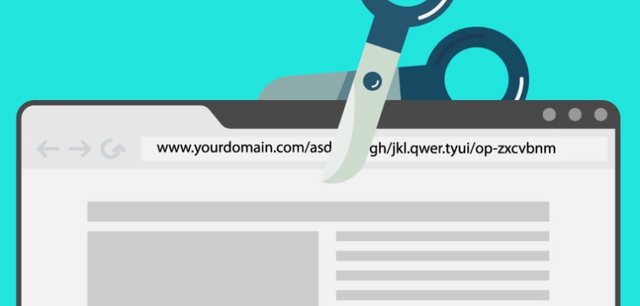This is Google's plan to end with URL(s)!!
URL(s) are a convenient way to access online resources, but according to Google, convenience has already been surpassed by security risks and it's time to replace them.

URLs or Uniform Resource Locators, the addresses we use every day to access online resources, are somewhat problematic entities. They have a complex structure that can easily be used by malicious people to, for example, create phishing sites, so similar to real sites that can fool a lot of people, with all the inconveniences that come from it.
This is a must read post, to prevent being caught on phishing attacks: https://steemit.com/writing/@diogosantos/online-fraud-what-to-do-to-avoid-being-the-next-victim-in-a-phishing-attack
For this reason, many programmers responsible for Google's Chrome browser are looking for anything new that can replace URLs.
Modern browsers already have a set of security measures in place to inform users about potential misuse of URLs. For example, using Insecure/Not Safe in Chrome to designate addresses that do not meet all the rules makes things much more comprehensible to someone who does not have great knowledge.
Other browsers highlight the domain name to bold, others, such as Apple Safari, cut all information in the URL field, minus the domain name and only show it when the user clicks on the address.
In addition to security issues, URLs have a somewhat quirky structure, which complicates things a little bit, because as domain names are read from left to right, the user first sees the domain name and only then sees its´s type (.com is supposed to be commercial entities, .gov for government entities and so on).
This system is already so adulterated that the section that indicates the type of site or service that is being accessed no longer says basically anything. For example, .com on anything.com may refer to something that has nothing to do with business activities and you only realize it when the page has just loaded.
In 2014, Google experimented a way to present the URLs in Chrome more similar to the one used by Safari, which was known as Origin chip, but abandoned the work due to complaints related precisely to the lack of security of the system.
At this time, Google does not reveal much about its vision for the future of URLs and certainly has a clear notion about the gigantic work that lies ahead to introduce changes to a system that has been used for many years. Both in terms of technology and the inevitable resistance to change of users and programmers.
For now, Google technicians are looking at how URLs are used in a variety of contexts before recommending anything. This is because there are many types of URLs used in different ways and, above all, shown to users in almost as many ways as there are applications that allow access to online resources.
Thanks for your time!
If you appreciate the work I´m doing:

You got a 7.56% upvote from @postpromoter courtesy of @diogosantos!
Want to promote your posts too? Check out the Steem Bot Tracker website for more info. If you would like to support the development of @postpromoter and the bot tracker please vote for @yabapmatt for witness!